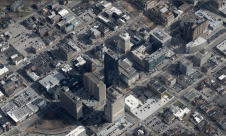Open Data
The open data virus is clearly spreading throughout the world. In Europe, EU Commissioner Kroes published new measures to stimulate the reuse of public sector data at the end of November 2011. Open data portals are increasingly filled with public data, often including public sector geographic data. Recently, the Dutch Minister of Infrastructure and Environment announced that by 1st January 2015 all of this ministry's data, including many geographic data sets, will be made available in line with an open data policy. As of 1st January 2012, this policy already applies to the Dutch topographic data set 1:10,000.
In addition, discussions continue on the scope of open data and the implementation of such a policy. A workshop in The Netherlands, organised by Geonovum, concluded that legal frameworks often provide sufficient space for open data initiatives to flourish. However, privacy legislation may prove to be a major barrier for opening up access to public sector data. Research in the UK and US shows that technology has advanced to the extent that, even if data is ‘anonymised' by aggregation, it can still be traced to individuals, making the data subject to privacy legislation. The question remains to what extent this reasoning impacts upon open data initiatives and whether current privacy legislation, in Europe at least, is too strict, outdated and insufficiently geared towards anticipating new technological developments.
In addition to the legal issues discussed, it was concluded during the workshop that practical obstacles still remain which should not be overlooked or underestimated. Users of public sector data still spend a great deal of their time on finding public data. If and when the data is found, the assessment of that data is time-consuming, either because metadata is not present or because access to the data is not straightforward. Finally, the assessment of the permissible use is often unclear. For open data, the notice that there are no usage restrictions is very helpful. Creative Commons Public Domain Mark, CC0 Public Domain Dedication or, for the UK, the OpenGovernmentLicence (OGL) are examples of how this legal transparency could be increased. The OpenGeospatialConsortium has published a new suite of use conditions that provides a first step towards the harmonisation of more restrictive licence provisions. In addition, the GSDI Legal and Socio-Economic Working Group is working on a framework for harmonising existing licenses. The GSDI Legal and Socio-Economic Working Group will continue to play its role in these debates, and aims to bring the key players together at its workshop on the harmonisation of licences to be held at the GSDI-13 Conference of 2012 in Quebec City, Canada.
To overcome practical barriers in the short term, we would urge public sector providers of geographic data to publish their (open) data in an (open) data portal and be sure to publish the conditions that apply, even if there are no usage conditions!
Finally, we would like to take this opportunity to thank Dr. Remetey-Fülöpp Gábor for his excellent work as chair of the GSDI Legal and Socio-Economic Working Group.
Dr. Bastiaan van Loenen is chair of the GSDI Legal and Socio-Economic Working Group of the GSDI Association. He is a faculty member and member of the OTB Research Institute for the Built Environment at the Delft University of Technology in The Netherlands.

Value staying current with geomatics?
Stay on the map with our expertly curated newsletters.
We provide educational insights, industry updates, and inspiring stories to help you learn, grow, and reach your full potential in your field. Don't miss out - subscribe today and ensure you're always informed, educated, and inspired.
Choose your newsletter(s)
























